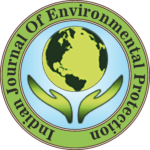IJEP 43(7): 612-621 : Vol. 43 Issue. 7 (July 2023)
Jasleen Kewlani*
Rajiv Gandhi National University of Law, Patiala, Punjab – 147 001, India
Abstract
The sociology of environment is a branch of sociology that explores ecological domains of knowledge. Its major focus is to understand the community based impacts of environmental alterations that occur globally as well on regional basis too. The impact of these environmental changes is also not same for all the communities and societies engrossed in the domain of change. Different communities get variably influenced by environmental changes and decline. Many ecological perspectives form a part of environmental studies in India and abroad too; some of those are liberal ecological perspective, marxian ecological perspective, deep ecological perspective, shallow ecological perspective, ecofeminism, system theory and the like. These perspectives have done great contributions to community based analysis of environmental impacts. The analysis undertaken by procedures of environmental impact (EIA) has also shown that any particular environmental or ecological occurrence does not leave universal impacts; the impacts are relative, depending on the nature of the region(s) or communities involved in the paradigm of study and research. Ecological studies also need to understand how the different communities visualize environmental changes; how are the impacts of environmental changes interpreted by the communities in which the change is actually happening. Environment has been linked with many aspects of human life. It is linked with religion, health, science, race, gender, social and other institutions and this has been well explored by ecological studies. The communities on the basis of their specific profile(s) also create different interpretations of the impacts and influence of environmental degradations and changes. The paper deals with understanding how different communities in the state of Punjab interpret and understand environmental degradation differently and how they respond to these changes. The paper is based on empirical research done in the state of Punjab, India. Punjab is an agricultural state, having a prominent role to do in national economy and world’s food market. Changes in the natural environmental rubrics of the state have drastically affected the agricultural scenario of the state and agricultural productivity also. Environmental degradation has been observed in the region, in various forms, like deforestation, air pollution, water pollution, soil erosion, climatic changes and temperature alteration, lowering of the groundwater table, etc. Governmental as well as non-governmental bodies are working to check environmental degradation in the state. To achieve this set aim, the common people also are required to contribute in their own specific ways. People’s participation in environmental management programmes is largely dependent on their understanding of the environmental phenomenon and the changes occurring thereon. This understanding and perception are affected by community factors: gender, literacy, rural-urban dwellings, etc. The present paper aims at exploring and explaining how different communities understand and respond to environmental degradation and other environmental changes taking place in the region. The findings of the paper state that different factors, like education, gender, rural and urban contexts do influence one’s perception of environment and environmental changes occurring in the concerned region. The need for functional literacy campaigns has also been highlighted to bring about the needed changes in the people’s mindset to make them oriented to environmental management and protection.
Keywords
Environmental degradation, Community participation, Environmental concerns, Environmental values, Social systems, Community perspective, Rural-urban dichotomy, Climate justice, Sustainable development, Deforestation
References
- Bell, M.M. 2012. An Invitation to environmental sociology (4th edn). Sage Publications, New Delhi.
- Boserup, E., et al. 1970. Woman’s role in economic development. Routledge, London.
- Mann, S. 2011. Pioneers of U.S. ecofeminism and environmental justice. Feminist Formations. 23 (2): 1-25.
- Kewlani, J. 2012. Deforestation and socio-economic environment. Concept Publishing Company, New Delhi.
- Mishra, V., R.D. Retherford and K.R. Smith. 2002. Indoor air pollution: The quite killer. East West Centre, Hawai.
- Narain, S. 2003. Killing the high-end killer. Down to Earth. 12 (4): 5.
- Bahl, N. 2018. Feminist dimension of biodiversity challenges. In Biodiversity law, policy and governance. Ed U. Tandon, M. Parasaran and S. Luthra. Routledge. London. pp 259-281.
- Chatterton, P., D. Featherstone and P. Routledge. 2012. Articulating climate justice in Copenhagen: Antagonism, the commons and solidarity. Antipode. 45(3):602-620.
- Schuerkens, U. 2017. Social changes in a global world. Sage Publications, London.
- Virk, H.S. 2017. A crisis situation due to uranium and heavy metal contamination of groundwater in Punjab state, India: A preliminary report. Res. Reviews J. Toxicol., 7:2.
- Weber, E.U. 2010 What shapes perceptions of climate change? WIREs Climate Change. 1: 332-342.
- Hulme, M. 2014. Attributing weather extremes to climate change: A review. Progress Phys. Geogr. Earth Env., 38: 499-511.
- Nibber, G.S. 2016. Will Punjab turn desert in 15 years? Time to map the water woes. Hindustan Times.
